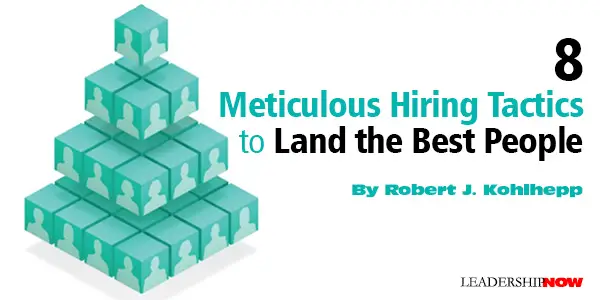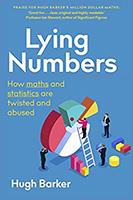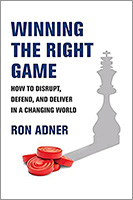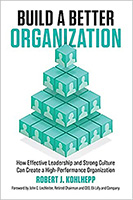 Leading Blog | Posts by Month |
 Leading Blog | Posts by Month |
10.31.21

LeadershipNow 140: October 2021 Compilation
See more on
Posted by Michael McKinney at 12:12 PM
10.28.21

Leading Thoughts for October 28, 2021
IDEAS shared have the power to expand perspectives, change thinking, and move lives. Here are two ideas for the curious mind to engage with: John Hagel on how emotions spread and thus how this dynamic can be used for or against us: “Emotions have an interesting network effect: Once a critical mass of people feel a certain emotion, it tends to spread exponentially, both in terms of the number of people who feel it and in terms of intensity with which it is felt. As the emotional cascade takes hold, it becomes harder and harder to resist.” Source: The Journey Beyond Fear: Leverage the Three Pillars of Positivity to Build Your Success Thomas Sowell on the media gimmick of turning questions of fact into questions of emotion: “Emotions neither prove nor disprove facts. There was a time when any rational adult understood this. But years of dumbed-down education and emphasis on how people feel have left too many people unable to see through this media gimmick.” Source: The Media's Role Look for these ideas every Thursday on the Leading Blog. Find more ideas on the LeadingThoughts index.
Posted by Michael McKinney at 06:04 PM
10.21.21

Leading Thoughts for October 21, 2021
IDEAS shared have the power to expand perspectives, change thinking, and move lives. Here are two ideas for the curious mind to engage with: The cellist, composer, and conductor, Pablo Casals, on being unique: “Each second we live in a new and unique moment of the universe, a moment that never was before and will never be again. And what do we teach our children in school? We teach them that two and two make four, and that Paris is the capital of France. When will we also teach them what they are? We should say to each of them: Do you know what you are? You are a marvel. You are unique. In all of the world there is no other child exactly like you. In the millions of years that have passed there has never been another child like you... You may become a Shakespeare, a Michelangelo, a Beethoven. You have the capacity for anything. Yes, you are a marvel. And when you grow up, can you then harm another who is like you, a marvel? You must cherish one another. You must work—we must all work—to make this world worthy of its children.” Source: Joys and Sorrows: Reflections Frank Partnoy on the one word of wisdom in decision making – wait: “Life might be a race against time, but it is enriched when we rise above our instincts and stop the clock to process and understand what we are doing and why. A wise decision requires reflection, and reflection requires a pause.” Source: Wait: The Useful Art of Procrastination Look for these ideas every Thursday on the Leading Blog. Find more ideas on the LeadingThoughts index.
Posted by Michael McKinney at 01:40 PM
10.20.21

8 Meticulous Hiring Tactics to Land the Best People
YOUR organization’s success comes down to who you hire. Just as great coaches don’t win many games without great players, great managers aren’t successful without the right people on their team. Finding, hiring, and developing great performers is the most important part of every manager’s job. One of the primary reasons for turnover in any organization is that the person who leaves or gets fired shouldn’t have been hired in the first place. A very structured process is essential for hiring the right people who are not only qualified to do the job but are also compatible with your organization. A meticulous process may require extra time on the front end but will save enormous time, energy, and money on the back end. Use these tactics to ensure success in your hiring process: 1. Conduct multiple interviews – When filling a position, conduct multiple interviews with each candidate, and recruit staff members to take part in the separate interviews. Following the interviews, bring together all the interviewers to discuss the candidate. You would be surprised how often a candidate answers the same question with a different answer. Look for unanimous consensus from all the people who participated in the interviews. 2. Account for “must-haves” and “preferreds” – For each job, establish “must-haves” and “preferreds.” A must-have is an absolute requirement on which you are unwilling to compromise. A preferred is a bonus attribute of a candidate. For example, an attorney who is licensed to practice in your state is a must-have, but a preferred qualification might be that he or she is licensed in adjoining states. 3. Examine past behavior – In interviews, the focus is on learning about past behavior because it often predicts future behavior. To better assess whether a job applicant might be a good fit, examine how the applicant behaved in the past. That’s not to say that people can’t change, but, in general, most people will continue to approach situations as they have in the past. To get reliable answers, ask situational questions. Examples could be: “What’s the most difficult decision you’ve ever made?” followed by “Tell me about that decision.” Or, “Have you ever fired anyone?” followed by “Tell me about the circumstances.” The goal is to understand how each candidate approaches or has approached situations and may act the next time a similar situation arises. 4. Check references – Rather than delegating the responsibility, the hiring manager should conduct the reference checks. Further, the hiring manager should make it a point to contact the former bosses from the candidate’s two most recent jobs. A boss can provide specific information about the candidate. Always ask a previous boss: “What areas did you ask the candidate to improve on in the most recent performance review?” You’d be surprised how often answers from the boss differ from those of the candidate in the interview. Reference checking is very important because the former bosses may provide insights that your interviews with the candidate won’t reveal. 5. Ask stress questions – Stress questions are those that test an applicant’s ability to perform under pressure. They require the candidate to react spontaneously to a stressful situation. Some examples of stress questions include: “How would you handle a customer who has verbally insulted you?” or “Why should I hire you?” or “How would you rate your performance in your previous role?” 6. Define the answers you’re looking for – As a good trial lawyer would tell you, “Don’t ever ask a question for which you don’t know the answer.” Similarly, you should always have a good idea of what constitutes a good answer to the questions you ask in an interview. Probe into any answers that you find either cursory or confusing. 7. Determine cultural compatibility – Every organization has its own culture. You know what it’s like to work at your organization and the kind of people who will fit in well. It’s important to ask questions that can reveal the potential compatibility of the candidate with the corporate culture. Specific questions could include: “How did you feel about your customers in previous jobs?” or “How did you feel about the people you worked with?” or “Tell me about your intensity in performing your job.” 8. Eliminate lukewarm candidates – From time to time, you may think you’re hiring the perfect candidate but later discover that you were wrong. But if your impression of a candidate is only lukewarm, you should refrain from hiring that person. Organizations hire lukewarm candidates because the hiring process is time-consuming and difficult, and they don’t wish to prolong it if no exceptional applicant surfaces. But making do with a mediocre candidate never works. You will be wrong every time. Hiring the right people is critical for your organization’s success. Use this structured, meticulous process to ensure that you hire well.  
Posted by Michael McKinney at 03:53 PM
10.07.21

Leading Thoughts for October 7, 2021
IDEAS shared have the power to expand perspectives, change thinking, and move lives. Here are two ideas for the curious mind to engage with: Elon Musk with a counterpoint to the idea to just trust the process: “I don’t believe in process. In fact, when I interview a potential employee and he or she says that ‘it’s all about the process,’ I see that as a bad sign. The problem is that at a lot of big companies, process becomes a substitute for thinking. You’re encouraged to behave like a little gear in a complex machine. Frankly, it allows you to keep people who aren’t that smart, who aren’t that creative.” Source: “Elon Musk's Mission to Mars,” Wired, October 21, 2012 Canadian actor and director Antoni Cimolino on the value of the arts: “One music teacher in a school does more good for our children than a truckload of computers — mere information, and the tools for processing it, are useless to people whom no one has taught to dream; bandwidth isn’t as important as mind width, and mind depth; training technicians will advance us not one whit unless we also nurture the imagination of potential visionaries.” Source: Speech, Artistic Institutions: The Wellsprings of Our Spiritual, Emotional, and Intellectual Well-Being Look for these ideas every Thursday on the Leading Blog. Find more ideas on the LeadingThoughts index.
Posted by Michael McKinney at 03:50 PM
10.01.21

First Look: Leadership Books for October 2021Here's a look at some of the best leadership books to be released in October 2021. Don't miss out on other great new and future releases not listed here.
In this book, General McChrystal offers a battle-tested system for detecting and responding to risk. Instead of defining risk as a force to predict, McChrystal and coauthor Anna Butrico show that there are in fact ten dimensions of control we can adjust at any given time. By closely monitoring these controls, we can maintain a healthy Risk Immune System that allows us to effectively anticipate, identify, analyze, and act upon the ever-present possibility that things will not go as planned. McChrystal illustrates how these ten factors are always in effect, and how by considering them, individuals and organizations can exert mastery over every conceivable sort of risk that they might face.
You were born to be an entrepreneur. You were taught to be an employee. Aspiring entrepreneurs are instinctively driven to be the master of their own fate and to explore the limits of their potential. But most hear two conflicting voices in their heads: an optimistic voice telling them all the reasons they should start a business, and a second voice-one that fears uncertainty-telling them all the reasons they should remain someone else's employee. Millions of future business owners feel trapped by those voices-like they are meant for something more but are stuck where they are.
From Michael Dell, renowned founder and chief executive of one of America’s largest technology companies, the inside story of the battles that defined him as a leader. Play Nice But Win is a riveting account of the three battles waged for Dell Technologies: one to launch it, one to keep it, and one to transform it. For the first time, Dell reveals the highs and lows of the company's evolution amidst a rapidly changing industry—and his own, as he matured into the CEO it needed. With humor and humility, he recalls the mentors who showed him how to turn his passion into a business; the competitors who became friends, foes, or both; and the sharks that circled, looking for weakness. What emerges is the long-term vision underpinning his success: that technology is ultimately about people and their potential.
Why are some of the world’s most successful companies able to stay ahead of disruption, adopting and implementing innovative strategies, while others struggle? It’s not because they hire a new CEO or expensive consultants but rather because these pioneering companies have adopted a new way of strategizing. Instead of keeping strategic deliberations within the C-Suite, they open up strategic initiatives to a diverse group of stakeholders—front-line employees, experts, suppliers, customers, entrepreneurs, and even competitors. Open Strategy presents a new philosophy, key tools, step-by-step advice, and fascinating case studies—from companies that range from Barclays to Adidas—to guide business leaders in this groundbreaking approach to strategy.
In every organization there are Impact Players—those indispensable colleagues who can be counted on in critical situations and who consistently receive high-profile assignments and new opportunities. Whether they are on center stage or behind the scenes, managers know who these top players are, understand their worth, and want more of them on their team. While their impact is obvious, it’s not always clear what actually makes these professionals different from their peers. Liz Wiseman reveals the secrets of these stellar professionals who play the game at a higher level. Drawing on insights from leaders at top companies, Wiseman explains what the most influential players are doing differently, how small and seemingly insignificant differences in how we think and act can make an enormous impact, and why—with a little coaching—this mindset is available to everyone who wants to contribute at their highest level.
Fear and uncertainty have been undermining performance and well-being in the workplace for as long as we have had workplaces. Here’s a little-known fact of business: mismanaged fear is responsible for almost all of the dysfunction that most organizations experience. While fear can drive short-term results, it does so at the cost of high employee burnout and turnover. It also undermines long-term business performance. But we can’t eradicate it entirely; it is inherent to the human condition. Winning organizations aren’t fear-free; they know how to reframe fear into opportunities for learning and growth. They create resilient cultures of unfear.
  
 Build your leadership library with these specials on over 28 titles. All titles are at least 40% off the list price and are available only in limited quantities. “There’s a lot to learn from the right leadership books. If you think you know it, think again. Ask those you trust what books have inspired them, and dig in. Always have at least one book going.” — Kent Taylor, Made From Scratch
Posted by Michael McKinney at 10:13 AM
|
BUILD YOUR KNOWLEDGE


How to Do Your Start-Up Right STRAIGHT TALK FOR START-UPS 
Grow Your Leadership Skills NEW AND UPCOMING LEADERSHIP BOOKS 
Leadership Minute BITE-SIZE CONCEPTS YOU CAN CHEW ON 
Classic Leadership Books BOOKS TO READ BEFORE YOU LEAD |
|